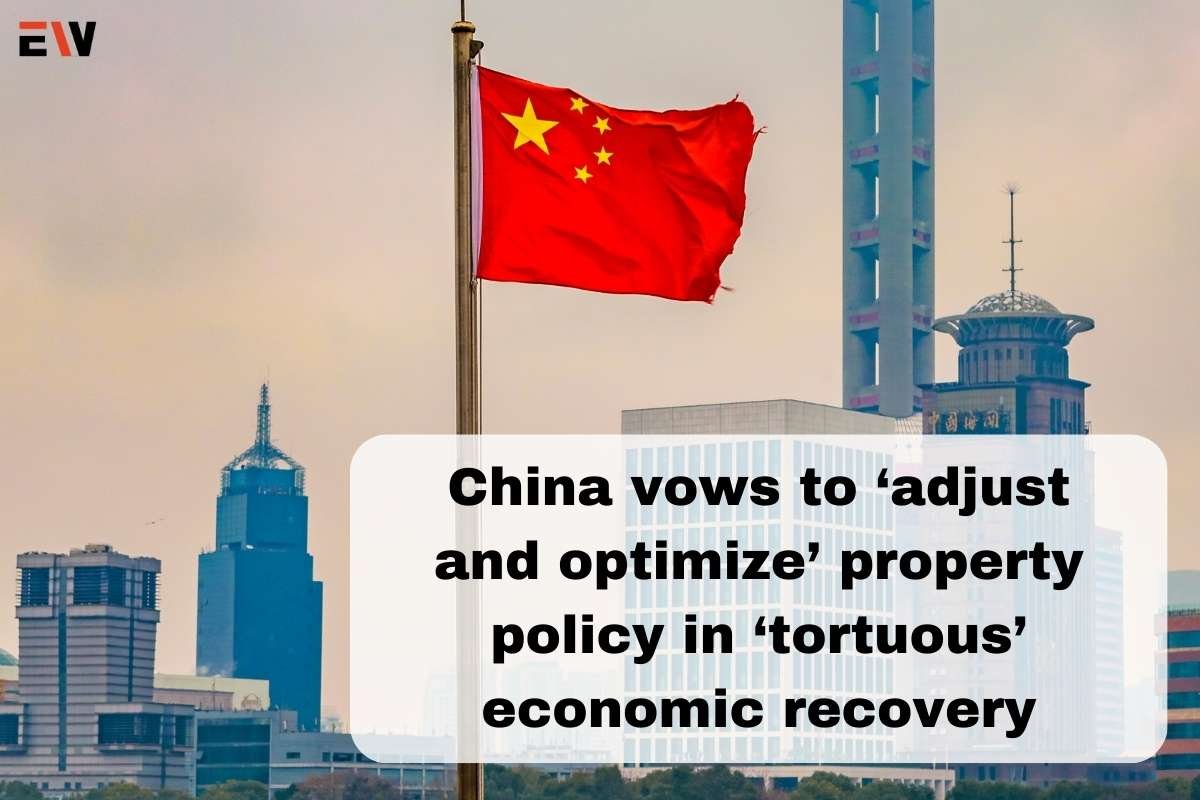Top China officials promised to “adjust and optimize policies in a timely manner” for the country’s struggling real estate market, elevating steady employment to a strategic objective, and making additional commitments to increase domestic consumption demand and reduce local debt concerns.
According to a summary of the Politburo’s quarterly meeting, which was presided over by President Xi Jinping, the Communist Party’s highest decision-making body declared it will pursue a “counter-cyclical” policy and primarily adhere to a responsible monetary policy and proactive fiscal policy.
China Signals More Economic Support After Property Debt Relief
More definitive direction on policy assistance
Market observers eagerly anticipate more definitive direction on policy assistance for the slowing growth of the second-largest economy in the world. Typically, the July Politburo meeting sets the tone for China’s economic policies for the second half of the year.
The Politburo was quoted by Xinhua as saying, “At present, the economy is facing new challenges and difficulties, mainly because of insufficient domestic demand, difficulties in the operation of some enterprises, many risks and hidden dangers in key areas, and a grim and complex external environment.” It went on to say that the post-pandemic economic recovery will take place in a “wave-like” and “tortuous” process. At least seven times in the readout, the Chinese word for risk was used, highlighting the government’s emphasis on risk containment.
Although Premier Li Qiang had earlier stated that China is on track to attain its annual growth target of approximately 5% this year, a slew of unimpressive economic data released last week spurred fresh requests for governmental intervention to boost development. China’s second-quarter gross domestic product increased 6.3% from a year earlier, representing a 0.8% growth compared to the first quarter, according to official figures released last week. This is significantly slower than the 2.2% quarter-on-quarter growth rate seen in the period from January to March.
“While it signaled more support for the economy, the Politburo meeting generally fell short of offering large-scale stimulus,” economists at Barclays wrote in a report late Monday. “We view this as a signal that the government would stabilize growth around its target but refrain from an outsized policy response, given the top leaders’ intended shift in focus to ‘quality’ growth,” they continued.
The Politburo’s policy commitments were applauded on Tuesday by the financial markets in Hong Kong and mainland China, exceeding larger Asia-Pacific benchmarks. The largest A-share listings’ index, the CSI 300, increased by more than 2% while the Hang Seng Index increased by more than 3%.
Real Estate in Focus
The term “housing is for living in, not speculation” was removed from the Politburo’s statement on the real estate market in the nation, according to observers. The Politburo currently discusses reacting to “major changes” in the dynamics of supply and demand in the real estate market, including city-specific initiatives to better meet citizens’ requests for better housing and basic housing needs. Along with it, it promised to “revitalize all types of idling properties.”
After the government tightened down on its debt levels in August 2020, the country’s real estate industry is currently working to recover from a credit crisis.










